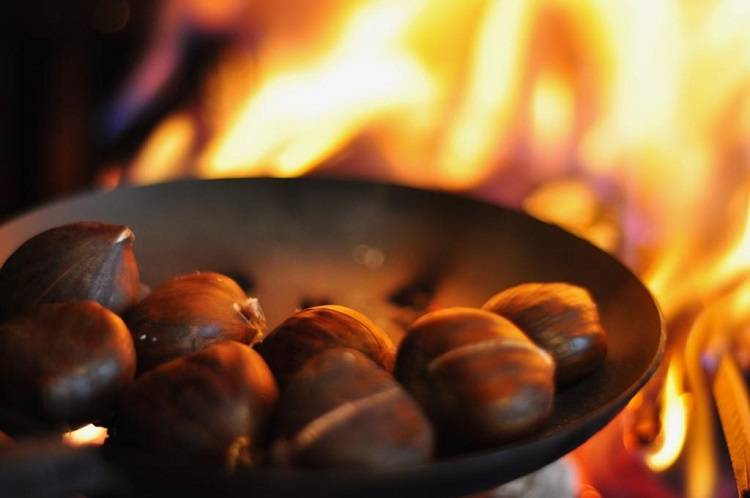How to Chestnut
The chestnut has long played an important role in the Mediterranean diet: during Classical antiquity, Homer and Pliny mention chestnut cultivation spread throughout the entire Italian peninsul; by the Middle Age, chestnuts were staple products through much of Italy, from Piemonte to Lazio. Interesting fact: Il Castagno dei Cento Cavalli — The Chestnut of 100 Horses — is believed to be the oldest chestnut tree in the world. Growing on the eastern ridges of Mount Etna, the volcano in Sicilia, it is estimated to be 2,000 to 4,000 years old.
This fall, discover how to incorporate this nutritious fruit (yes, it's a fruit!) into your life with our guide!
There are European, American and Asian types of chestnut. In the Italian marketplaces, chestnuts are found in two varieties: castagne, usually smaller and relatively flat sided, and marroni, rounder, larger, and firmer to the touch.
Chestnuts are low in fat, high in fiber, and stuffed with vitamins and minerals, such as magnesium and calcium.
Enjoy an adventure in the woods! Remember to pick up chestnuts only from the ground and not from the tree. In fact, they are ready to be harvested only after they've dropped.
When selecting chestnuts, look for their beautiful brown shine. The fruit should feel firm and solid in your hands.
Although you can eat chestnuts raw, the flavor might be a bit harsh. Most generally roasted, they are also delicious when candied, boiled, steamed, or deep-fried. In Italy, we especially love them peeled and hot, right from the embers. (Why yes, we're talking about chestnuts roasting on an open fire.)
Chestnut's flavor can be enhanced by tossing it in sugar, cinnamon, and even in a bit of melted butter. Why not?
After cooking, you can also eat chestnuts plain, right after you peel them. Pick a tangerine to go along with them: they pair perfectly!
Don’t have the time to go hunting chestnuts? Stop by our Eataly stores in New York, Chicago, or online, and discover our ready-to-enjoy products. We love Agrimontana's tasty chestnut cream mixed in yogurt, as an icing for a layered cake, or as a seasonal topping for gelato.
At Eataly, we think and cook seasonally! Our chefs are always excited to combine the best ingredients offered by nature each season of the year. Check our daily specials, and you just might find chestnuts. (Peep the below fall dream: roasted honeynut squash filled with chestnuts paired with kale, pumpkin seeds, and cranberries — all topped with a creamy goat cheese sauce.)



































i-Italy
Facebook
Google+
This work may not be reproduced, in whole or in part, without prior written permission.
Questo lavoro non può essere riprodotto, in tutto o in parte, senza permesso scritto.